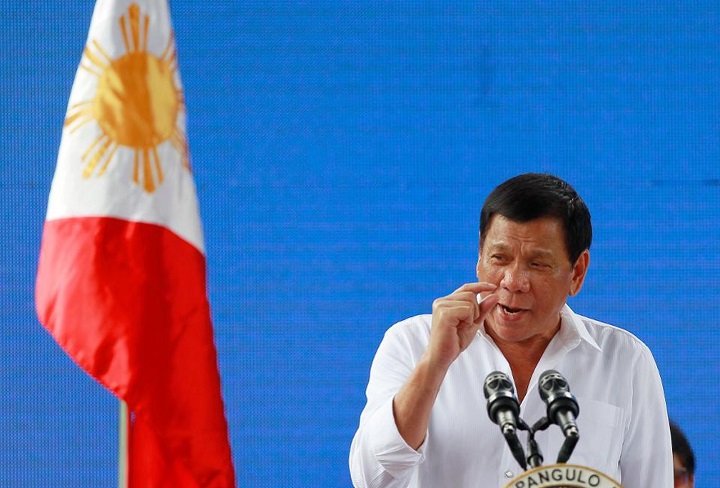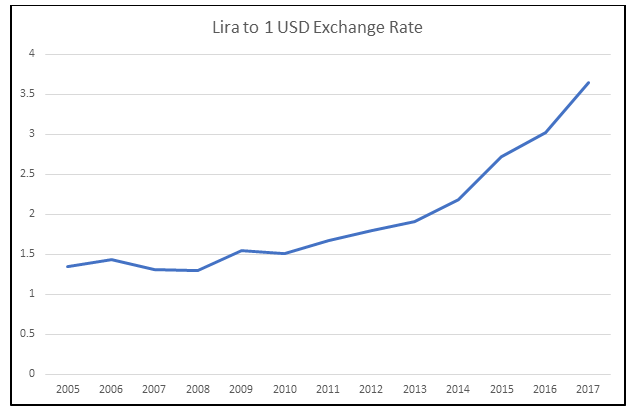
I had some Chinese last night and my local takeaway hero gave us some fortune cookies to go with it. My wisdom-in-a-biscuit read “The Chinese use two brush strokes to write the word ‘crisis.’ One brush stroke stands for danger; the other for opportunity.” This is a pertinent statement about the current development in Asia, and a timely one too. While half the world is predicting doom, there is another half that sees boom.
What’s happening in the Philippines
This relatively new powerhouse of the Far East has been a surprising under-dog in recent years. President Rodrigo Duterte elected to power in 2016 has been a force not to be reckoned with. This shoot-from-the-hip leader has been ruthless on his war on drugs and terrorism and attracted international criticism. His economy policies, on the other hand, is far from dangerous. Philippines has had a growth spurt the last decade.
The Filipino society are experiencing an increase in urbanization and a growing middle-class. Business activities are buoyant with notable performance in the services sector including the Business Process Outsourcing (BPO), real estate, and finance and insurance industries. Unemployment has reached historic low rates. Underemployment, however, remains high, near its 18-20 percent decade-long average.
In 2017, the Philippines was among the top three growth performers. The Philippine economy grew from 6.9 percent year-on-year in 2016 to 6.7 percent year-on-year in 2017. On paper, one would think President Duterte is doing the right thing.
Despite this, the World bank recently downgraded this country’s growth, citing “”heightened global market uncertainty and rising domestic inflation weighed on the Philippine economy in the first half of 2018.” This is quite telling as the Philippines is starting to see chink in their armor.

What’s happening in India
Moving on from the Far East, let’s have a peek of India, the world’s biggest democracy. Prime Minister Modi was the outlier that upset INC in the 2014 elections. As the world’s third largest economy in terms of purchasing parity, Prime Minister Modi is committed to make India great again. He hopes to make India a high-middle income country by 2030. But with great dreams, comes great challenges.
Home to 176 million of the hardcore poor, India is committed on growth. In recent years, the country has made a significant dent in poverty levels, with extreme poverty dropping from 46 percent to an estimated 13.4 percent over the two decades before 2015.
It is seeking to achieve better growth, as well as to promote inclusion and sustainability by reshaping policy approaches to human development, social protection, financial inclusion, rural transformation, and infrastructure development.
But if you ask any FOREX trader, they would point out otherwise. The Modi government are struggling to keep the rupee afloat. As the rupee falls, oil prices rise, hurting the Indian population and its economy. This will certainly lead to inflation of consumer goods. How this will impact the long-term view is yet to be seen. But one thing is certain, poverty cannot be alleviated with a falling currency.

[3]
What’s happening in Turkey
Next, lets see the country that should be in the EU yet mostly is in Asia but more akin to the Middle-East, Turkey. The President of Turkey, Recep Erdoğan, has been having a very eventful presidency. From a coup that could have seen him ousted, to signing of the constitution to seal his leadership, President Erdoğan has his hands full.
Since Erdoğan coming into power, the government has been borrowing money to fund many state-owned projects. The economy has relied on capital inflows to fund private-sector excess, with Turkey’s banks and big firms borrowing heavily, often in foreign currencies. Under these conditions, Turkey must find approximately $200 billion a year to fund its wide current account deficit and maturing debt, while always being at risk of inflows drying up; the state has gross foreign currency reserves of just $85 billion.
However, this gambit is working against the President. Investment inflows had already been declining in the period leading up to the crisis, owing to Erdoğan instigating political disagreements with countries that were major sources of such inflows (such as Germany, France, and the Netherlands). This is summarized by how the Turkish Lira has been performing against the USD as shown below :

[4]
How business works in Asia
Based on these three samples, Asia has a very interesting way of operations. It is very people-centric. Unlike the more mature economies such as Western Europe, Asian economies are built around people and their resilience. Doug Leone, an early- and growth-stage investor at Sequoia Capital, said at Disrupt that he’s noticed a very different work ethic in China.
Chinese entrepreneurs, he explained, are more ruthless than their American counterparts and they’re putting in a whole lot more hours. “I’ve had dinner in China until after 10 p.m. and people go to work after 10 p.m.,” Leone recalled.
Summary of the future
Will Asia go through another crisis? Perhaps, but it most likely would be a leadership crisis. Asian countries are seeing a change from previously authoritarian regimes to more open and relatable leadership. Malaysia, as an example, recently ousted the 72 years old incumbent party for a brand-new government led by a previous Prime Minister. Singapore, a pseudo-iron claw regime, has been losing votes to its opposition. Perhaps this is the metamorphosis Asia is going through before it matures into a butterfly and join hands with the stable western economies.
And if my fortune cookie had to summarize, Asia is going to surprise the world.

[5]
—
Thank you for reading my post. I regularly write about private market opportunities and trends. If you would like to read my regular posts feel free to also connect on LinkedIn, Twitter or via Atlanta Capital Group Investment Management.
Greg Silberman is the Chief Investment Officer of ACG Investment Management LLC (“ACGIM”). ACGIM specializes in creating custom private market solutions for RIA/Family Office clients.
This material is not intended to be relied upon as a forecast, research or investment advice, and is not a recommendation, offer or solicitation to buy or sell any securities or to adopt any investment strategy. The views and strategies described may not be suitable for all investors. It is not possible to directly invest in an index. An index fund is a type of mutual fund with a portfolio constructed to match or track the components of an index. Past performance is no guarantee of future results. Investments will fluctuate and when redeemed may be worth more or less than when originally invested. Advisory Services offered through ACG Investment Management, LLC. ACG Investment Management is an affiliate of ACG Wealth Inc.
References
[1] Image from
[2] Image from https://www.nst.com.my/world/2018/06/384227/outrage-after-philippines-duterte-calls-god-stupid
[3] Image from https://www.rediff.com/business/column/how-modi-can-solve-indias-poverty-problem/20170927.htm
[4] Data from https://data.oecd.org/conversion/exchange-rates.htm
[5] Image from https://www.geckoandfly.com/16648/fortune-cookie-quotes/